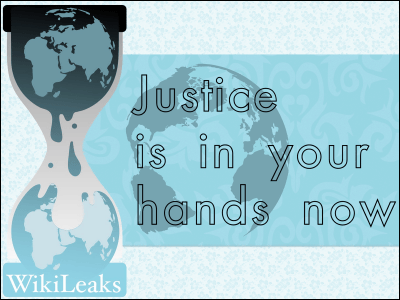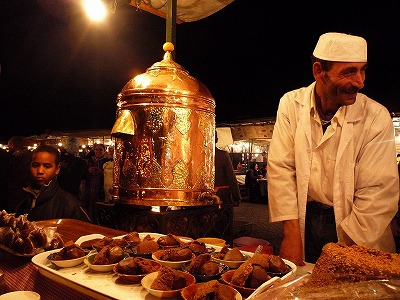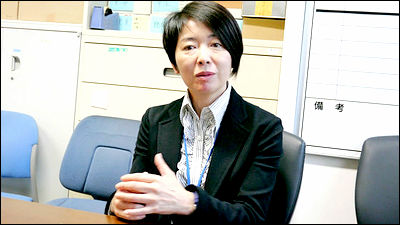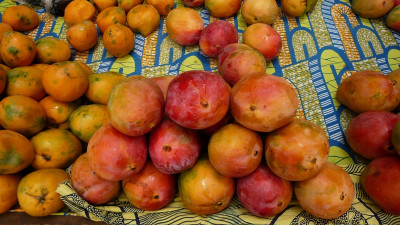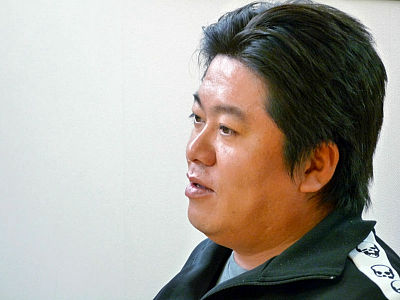Interview with Masaki Kunieda, former ambassador to Syria, author of 'Islamic State'

A book that thoroughly explains what is the organization that calls the `` Islamic State '' (Islamic State, IS) that is making the world turbulent now, and how it is different from terrorist organizations that have appeared so far, in 2015 'Islamic country identity' released on Tuesday, January 13. This time, I've talked to the author and Masaki Kunieda, who once worked as an ambassador in Syria, which is currently the main base of IS, and talked about it.
◆ Contents
・ Because I became a diplomat
・ What is the “negotiations to release hostages” of diplomats?
・ About the official residence chef
・ To know information correctly
・ The ambassador who carried a large amount of wad in a bag
・ Arab black market
・ 'Tail' of diplomat
・ How to call 'Islamic State (Islamic State, IS)'
・ Is it true that the Japanese embassy can't count on you and escape to the US embassy?
・ The future of the “kidnapping case”
· Advice for those who want to be diplomats
・ What you want to tell GIGAZINE readers
◆ Why did you become a diplomat?
GIGAZINE (G):
Mr. Kunieda joined the Ministry of Foreign Affairs after graduating from college. When did you decide to go to the Ministry of Foreign Affairs and become a diplomat?
Masaki Kunieda (hereinafter Kunieda):
There was a home atmosphere. After the Meiji Restoration, his great-grandfather studied at the U.S. Navy College, and his grandfather studied abroad in Germany, Britain, and France during the Meiji era. I heard that kind of story since I was a child, and in Indonesia, at that time it was called Dutch Java, but my parents were living in Surabaya, the capital of Java, so from my childhood. Foreign countries were familiar.
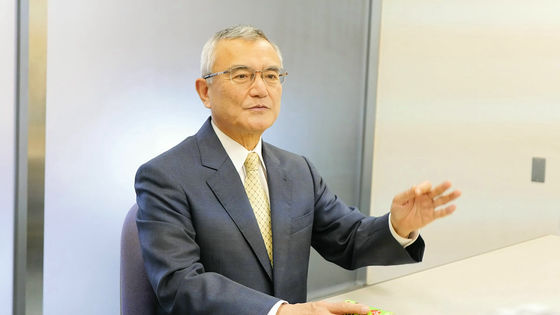
G:
So that's it.
Kunieda:
Then ... I read the Asahi Shimbun since I was in elementary school! (Laughs) I read a lot of foreign news, so at first I tried to be a reporter for the Asahi Shimbun. At that time, there was a headquarters in Yurakucho, so I went there and asked, 'Are you working eight hours a day?' And they were told, 'You don't have to come' (laughs), and the path of the media was cut off there Was. At that time, my body was weak, and when I consulted with my doctor about what had happened, I was told, 'I'm not a diplomat.' I'm sorry, but there isn't much Aoi's will (laughs)
G:
No, it was a real choice.
Kunieda:
So I went abroad ... I met a woman over there. When I'm single and in my mid-20s, I'm interested in women. Then, even though this was a coincidence, my grandfather, who became my wife, was actually related to my grandfather.
G:
What ?!
Kunieda:
It is a famous Japanese scholar who took the time, but he said that he had stayed at his wife's house more than 10 years before my birth in 1935 and attended a seminar. 38 years later, in 1973, when he was a visiting professor at
G:
It looks like a movie or a novel.
Kunieda:
That's right. I'll show you a few photos ... this is my wife's house and the view you can see from there. The teacher came here. My wife's grandparents lived in a house about 80 meters away from here, and every summer, Karl Barth , a Christian theologian representing the 20th century, came and spent the summer. Nearly 40 years until the end of the 1950s. My wife's mother and Karl Baltic's eldest daughter are also named 'Franciska'. Karl Barth and his wife's grandfather promised that they would give each other the same name if they had a daughter. When she got married, she revealed her heart only to Karl Balt in advance and gained a blessing and acted out of her parents' opposition, but when her daughter was born, she gave the same name again, It's the same name. It took nearly 10 years for my parents to dissolve.
G:
Listening to the story is like a novel ...
Kunieda:
When I asked, 'If my father calls Francisca, I don't know if she's calling her mom or you, what's the difference?' He didn't have a clear answer, but he understands it (laughs). In that way, you have a relationship centered around Karl Baltic, but my grandfather and my grandfather also knew each other.
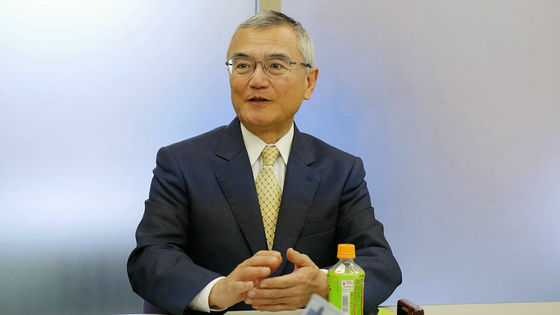
G:
I see ... just listening to the story now has a strange edge.
◆ What is the “negotiations to release hostages” of diplomats?
G:
In this interview, I read the 'Unreported Middle East Truth' and 'Islamic State Identity' written by Mr. Kunieda, and among them, 'About 200 Japanese were taken hostage in the 1990 Gulf Crisis. When this happened, an episode appeared, 'I was in charge of release negotiations as a counselor for the Embassy of Iraq in Iraq.' What exactly does 'negotiation for release of hostages' mean?
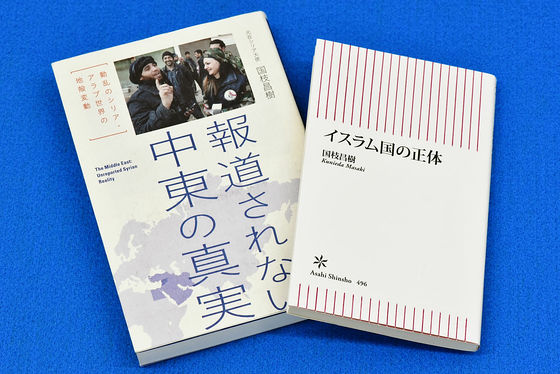
Kunieda:
There was a president named Saddam Hussein. In August 1990 he occupied Kuwait. At that time, there were about 240 Japanese in Kuwait, but I came to Baghdad when I couldn't escape anywhere and had to go somewhere. And all 240 people were taken hostage in front of me. This was humiliating. Even if you negotiate with the commander on the scene, the other side is told by President Saddam Hussein, 'Let's all be hostages,' so it's not negotiable at all. I was finally grabbed by soldiers on both sides and dropped into the car. Women and children were released a week later, but men were scattered around strategic bases, such as dams, airports, factories, and so on as so-called '
G:
I don't think we can't negotiate directly with President Hussein in this case, but where do we start first?
Kunieda:
First, the official route is the Ministry of Foreign Affairs. He is the Asian Director of the Ministry of Foreign Affairs, as well as the Under Secretary and Minister. The Foreign Minister has a direct relationship with Saddam Hussein. The Prime Minister at that time was Toshiki Kaibe, who was to come to Jordan. The Iraqi side also heard that the Vice President went to Jordan to meet with the Prime Minister of the United States, and there was negotiations immediately before whether to go or not to go ... The director who was directly instructed by the Vice President over there, This is where the ambassador was in Jordan, so I went into negotiations. He was directly instructed by phone from the Vice President, so I was nervous and I wrote down my words each time, but I said bad things and told the Vice President `` I did not go '' Choose a word because it would be a problem if we were to. As a result, he was glad that he reported on the phone in front of me and the Vice President said 'go.' I can't say a lot because I hit a few words, and since he's taking notes, the words are limited, so don't give up and don't do anything that makes me think I need to go out there I used to use a head that I do not use everyday (laugh)
G:
Was it done in local language?
Kunieda:
I did it in English. I'm French in the government, but I speak English except Arabic, and I'm not an arabist.
G:
I see, i see. It's very fresh and what I mean by choosing words is a little glimpse of what I'm talking about.
Kunieda:
What you just said is the public route. But because the public route doesn't end things, I use another route.
G:
What is another route in the category that can be said?
Kunieda:
It's a secret police and security authorities. In the end, the security authorities were most responsible for the hostage, so we will get a lot of information from the security authorities and tell us about this request. At that time, we negotiated with the commander on site for about three hours, and in the end he was irritated and fell into the car with those around Kalashnikov. Just before that, when he felt good, he asked him for his phone number. So, when you call, you get angry and say 'What's the negotiation?' Then, if you call for about 3 minutes, you will be cut off saying 'I've called again!' And when he calls again, he says, 'Don't call me!' But if you repeat this several times without discipline, you will hear 'What ?!' So, when his feelings subside, he communicates this request. If you do it a few times, some demand will be accepted. He was angry at first, but came to me the next morning if he felt he needed it. When the gatekeeper says, 'A customer has come!', And returns 'No customer should come,' he says, 'I came!' When I ask who he is, I don't know (laughs). I know he's actually the commander of the security authorities. Then, when I went, he told me, 'That's it,' and at that stage one of the negotiations went.
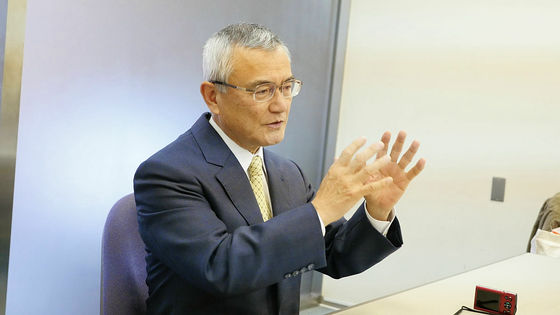
G:
Negotiations can be made by accumulating such things.
Kunieda:
It is important not to give up whatever you do. If you are humans, if you don't give up, you'll feel like you're gonna ask one or listen. I'm very nervous because it is a direct instruction from the president. It is the greatest duty as an official to have to protect the life and property of Japanese residents here, and if you fail, you have to take responsibility, so it is serious and if you do, you will have something to communicate with each other It's weird, 'What communicates' is like 'tears,' but even under tension, you can understand each other's position and do what you can do in it. Right.
G:
Hmm, I see.
Kunieda:
When nearly 200 people were scattered around, we searched for information and where we went. At first I didn't know, but in the end I knew where about 95% of the people were. At that time, there were more than a hundred dozen expatriates in Baghdad. In addition to entry visas, they have to get an exit visa from the authorities to return to Japan. Can't you imagine flying for the first time?
G:
You get it separately from the entry visa.
Kunieda:
There are some places where such systems are real and still exist. Because they do not issue exit visas, they have to stay or are under house arrest. However, this is a great place, and everyone said, 'They are suffering here, but the hostages that have been turned to various places on the site will be in a more severe situation,' said a branch manager of a trading company. Was the chairman of the committee, and he wanted to create a committee where he wanted to collect and send rice crackers and sweets to those who became hostages. So, we negotiated with the other side (Iraqi side) in advance, and they told me that both the security authorities' routes and the official routes were OK. So I handed relief supplies to Iraq. At first I was skeptical, would it really arrive? But you can tell from an unexpected point that this has arrived at the scene, the U.S. Embassy.
G:
American embassy?
Kunieda:
Yeah, 'I'm asking you a lot of crackers and so on.' ... When I asked why I knew it, the hostages were not only Japanese, but Americans, French, and Germans. So you were trapped together in a strategic strategic point. Then, the crackers reached only the Japanese, and the Japanese gave it to everyone. Then the Americans were deeply appreciative and asked their family, 'I first received and ate what rice crackers,' or came to the Japanese and said, 'Japan is doing good things, America can't do anything at all.' ', And the US Embassy reported that he was' complained '(laughs). So I knew that the trial was really going well, but in that respect the abductee was keeping his promise.
G:
Indeed, you can understand that.
Kunieda:
At that time, I thought about the warmth, size, and action of the Japanese people. When we were under house arrest, and we might run out of food tomorrow, we provided everyone with the essential rice crackers we had stocked.
G:
That's what happened ... It's amazing.
Kunieda:
Awesome! Also, Japanese hostages were trapped in a place about 100 meters away from where Japanese experts dispatched from private companies were stationed. He thought of it and asked the Iraqi people nearby to deliver the book he had, saying, 'There may be Japanese there, so please deliver it.' The hostage read it and was impressed, and this time on the back of the door of the book, 'Thank you very much. We are such a person, and now we are trapped there ...' I wrote it. However, for Iraqi people, even if they write kanji, they do not know whether they are printed or handwritten if they are written in standard style.
It seems that he wrote a message in such a part
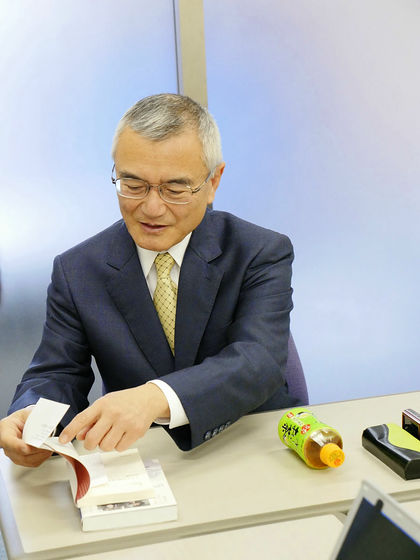
G:
Oh, yeah!
Kunieda:
In response to the report, we sometimes knew the details. Then I tried to do it a little bit, so I replaced the book in various ways and asked me to write it again. 25 years ago.
G:
There are various things ...
Kunieda:
This is an idea from Japanese people. At that time,
G:
Well, it is a masterpiece.
Kunieda:
The negotiation route does a good job of the negotiation route, but you've done something really great in that way. I want you to know this.
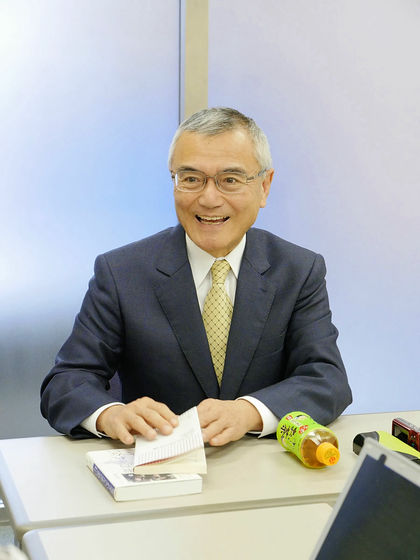
◆ About the
Kunieda:
It was on August 2 and the daytime temperature was over 50 degrees. In Japan, coolers are bought for 6 tatami mats or 10 tatami mats, but they are not the other way around.
G:
What?
Kunieda:
They buy 'how much horsepower'. So, starting from 0.5 horsepower, there are 1 horsepower and 3 horsepower, and that kind of pounding is going down, but still it drops only to about 40 degrees. When I have to go out, I wear a shirt and roll up my arm and go out, but my skin gets chilly and I feel that `` Bacon placed on a frying pan will feel like this '' I was living that way, saying, 'Oh, this is Baghdad ...'
G:
(Lol)
Kunieda:
At that time the wives and children had already been evacuated, so we were the only men, and for lunch, all the embassies paid out and hired self-proclaimed Iraqi cooks, and had dinner at home at night. I was eating. I work 16 to 18 hours a day, so when I get home, I just take a shower and go to bed. Then, at a glance, at a glance we had a sense of danger at the glance at the dish that a self-proclaimed cook had served. The thing is, there is soba on the left half of a large plate and ketchup on the right half.
G:
What is it ... (laughs)
Kunieda:
He said, 'Hey, he might think this is spaghetti ...' and when he asks for a moment, he just says 'Spaghetti!' I said, 'Soba and ketchup don't make it spaghetti!' And I ate it because I had only this one, but I ate ... but I can't.
G:
Ahaha (laughs)
Kunieda:
The next day, I had already picked it up (laughs). He insisted, 'This is spaghetti!' Until the end, but Japanese soba does not become spaghetti! So I skipped lunch that day.
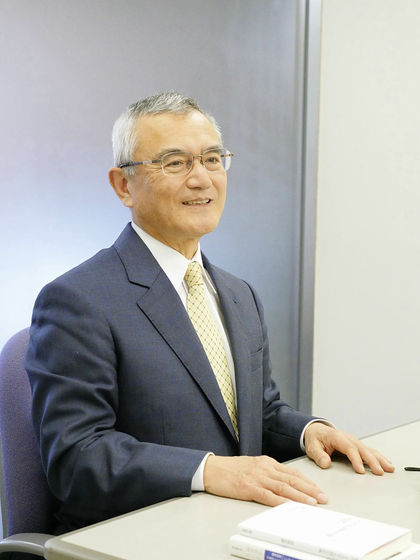
G:
What I was just trying to ask was that when I became an ambassador, I would have chosen to be a “official residence cook”. There is a manga called “Cook of the Embassy” and it has just been turned into a drama .
Kunieda:
I chose three times because I did the ambassador twice as when I was Consul General. He was a Japanese cook during the Consul-General, and is still familiar. But the first ambassador I went to was Cameroon and the second was Syria, but few Japanese cooks go to Africa or the Middle East at this time. Even if you go, that would mean that your salary would be higher. Then, Mr. Cook and us are a personal contract, and we pay Mr. Cook's salary from the monthly salary we receive, although there is also subsidies from the country.
G:
Hoho.
Kunieda:
But if you were a Japanese expert, you would have to pay hundreds of thousands of yen, and that would mean we would lose our salary. (Laughs) So, as a current system, I trained a cook who was recommended by a Japanese restaurant with a good reputation in Bangkok for 3 months, gave me the know-how of cook and operation of the official residence, and conducted the test. And if it passes, we go to the site and have them make kaiseki food and eat it, and have about two people as candidates, but also round trip to Bangkok, hotel fee, and kaiseki food fee, All we pay personally. No officials were issued saying, 'This is not public.' It should be public, but ...
G:
Um ... is that so?
Kunieda:
Because my wife lives together, I'm going to go with them because I have to say what my wife has to say? That would double the price. Kaiseki cannot be divided into two parts, so I need two people, but I pay all of them. That's why I choose one person to come. Thais have a relatively low salary, so we can cover our salary. However, when they came to Yaounde, the capital of Cameroon, a couple of chefs came down from an airplane at the airport and tried to greet each other. I can't talk. Even though they are Japanese food specialists, they can't speak Japanese. I know the proper nouns, such as 'tofu' and 'salmon', but they don't talk. This was a problem, I couldn't live under the same roof and say, 'I'm planning this next week, how many meals will I make that day, and the contents will be like this?' Mr. Kok only has Thai, while Thai is just a little gibberish, so it can't be helped. So I was surrounded by a fierce sense of crisis and taught Japanese almost every day, 30 minutes after meals in the morning and lunch, and 1 hour in the evening. Then, I'm teaching, but somehow the teacher is sleeping and the students are smiling and waiting (laugh)
G:
Ahaha (laughs)
Kunieda:
After all, it's night, so I'm tired and my eyes close without knowing (laughs). However, after one year of continuous conversation, I became able to communicate, and communication was no problem.
G:
Wow.
Kunieda:
There are also such difficulties.
G:
That's amazing.
Kunieda:
There are not enough ingredients in places like Cameroon, so I sometimes go shopping inland to the coastal area 300km away.
G:
300km !?
Kunieda:
About three big cooler boxes and pack a lot of ice in them. However, when it came time to buy it, he said, 'This is a bream,' and said, 'This is not a bream, it's a tropical fish.' It's about the size of a sea bream, but it's rectangular, with dark brown, orange, and green stripes. Still, I insisted that it was a sea bream, so when I bought it, saying, 'Okay, let's buy it because I was deceived,' it looked white and similar to Thailand. Then they say, 'This is a sardine.' Sardines are sardines, so they say, 'Sardines are sardines. Sardines are in the cold. There is only the Atlantic warm current, so there are no sardines here, this is not sardines! 'What do you say! This is a sardine! In my father's and grandpa's days I was saying this was a sardine! You're wrong, not a sardine!' When. So, I got lost and said, 'Okay, give me. How much?' After that, it is a shrimp. It ’s so big that there ’s no shibirame. When I heard about a couple of years, the Fisheries Agency's staff came a little bit and asked, 'Oh, that's grandfather grandmother.' (Laughs) Then I chose the small one hard. Then there is Barracuda, but Barracuda is Camas. However, the camas over there are about 25cm in diameter and over 1m long when they are large.
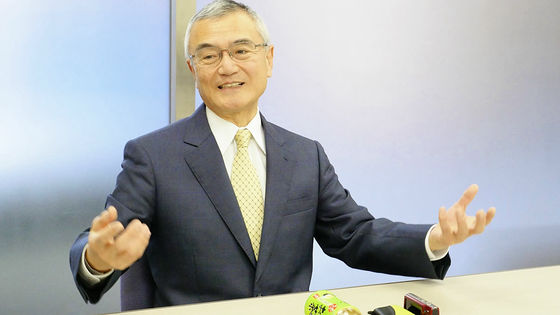
G:
It's huge ...
Kunieda:
Even small ones are about twice the size of Japanese camas, but I bought them. I struggled a lot like that. But the Thai cook did it well. Because there was no radish, the turnip was replaced with the radish. Okra is big and hard over there, but in Japan it seems to be soft because it is small. Then it is the taro stem. 'Macabo' is like taro and I don't know if it's really the same, but the taste is also like taro, the upper stem is still taken at the stage of sprout, it is distorted and made like salad, When I put the bonito and put soy sauce on it, it was really a Japanese food world.
G:
It is something that can be done in various ways depending on the device.
Kunieda:
It's really a world of ingenuity, Thai people have done well. 'Necessity is the mother of invention' and made various things.
G:
I don't know because such stories are rarely reported.
Kunieda:
That's why we have Japanese kaiseki dishes made and eat by customers. The reputation was always very good. The final closing dessert was also made in various ways, but the one that was most accepted and surprised by customers was ice cream made with ripe bananas. Until then, Japanese food meant 'see, enjoy, enjoy,' but at the end only very simple ice cream comes out. It seems like 'the atmosphere is a bit different than before', and when I eat a bite, everyone is surprised and stares at me. The man is staring and it's over, but the women ask me, 'Is this a homemade or made at home?', And I said, 'This is made using the ripe banana we made. Ice cream. ' Bananas eaten in Japan are picked up in the blue in the Philippines, etc. and fumigated or something, so you can't eat ripe ones, but the other side is just 'ripe'. It is really delicious if you put it in ice cream or something. Ripe bananas themselves are delicious and cannot be eaten in Japan, and have very high sugar content. It was a spectacular show that surprised everyone, and they were surprised that 'it was really delicious to eat.' In particular, the members of the diplomatic corps were surprised.
G:
Do you make something delicious and then make it easier to talk afterwards?
Kunieda:
That's right. And those people use chemicals to add color and flavor, and I think it's good. However, if you make it with local things, you can make wonderful things. I said, 'This is the age of natural regression, and that's good,' and said, 'I should just take this and can export it to Europe.' There was no African who agreed with the opinion. But it's really good. Mango is good, and papaya is delicious. But they don't value that much. I think that if you go to Europe you will be accepted as a wonderful thing ... unfortunately it is like that.
G:
There are many differences in values.
Kunieda:
Our cook did really well. Same in Syria.
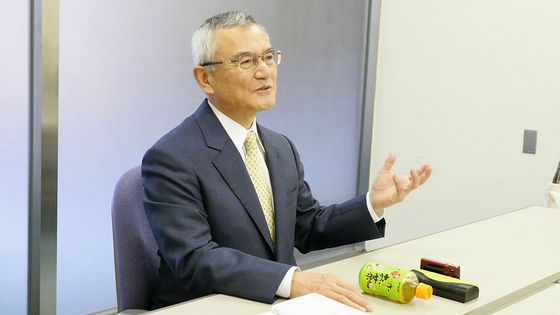
G:
What was it like?
Kunieda:
In Syria, there is a port about 3 hours from Damascus. There are only three ports in Syria, but the one closest to Damascus is the end of the Mediterranean Sea. The exit is the Strait of Gibraltar, where tuna are migrating around the Mediterranean. But the big tuna was taken in Gibraltar, and the only thing left to come this far is a small one. That's why no toro has yet been made. But I got such yellowfin tuna and there was a place to sell it, so I went to buy it at 5:00 in the morning.
G:
Even a single food is a big difference ...
Kunieda:
In other words, I was already self-sufficient, and I had to search for and get them.
◆ To know information correctly
G:
Previously, the Japan-Syria Friendship Association hosted a lecture by Mr. Kunieda, '
Kunieda:
One thing in terms of reporting is that everyone is in Cairo. In Cairo, east is Pakistan or Iran, Iraq, west is 6000 km to the end of Morocco, and it is impossible to cover one of the more than 20 countries there alone.
G:
It's impossible no matter what you think.
Kunieda:
A big mistake if you think you can do it. So they don't act until something has exploded. Then, in many cases, you will be using Western news articles and there is no unique coverage. Just go on your own, stay for a few days or at most a week. However, we are observing fixed points, as are Japanese residents. So I wish we could have a closer relationship with those people.
G:
Indeed, when you talk to people who are long in the field and get information.
Kunieda:
Also, there is a survey article in the field in a Japanese newspaper, but if you look at such an article and think well, people who are quoted as saying 'XX spoke this way' are students or cafes There are overwhelmingly many levels, such as uncles who met in the park, tobacco shops in the open space and fathers of greengrocers. However, the Washington Post, the New York Times, Le Monde, etc. are secretaries of foreign affairs, ministers of foreign affairs, ministers in charge of XX, or policy makers. I always wonder why there is such a difference.
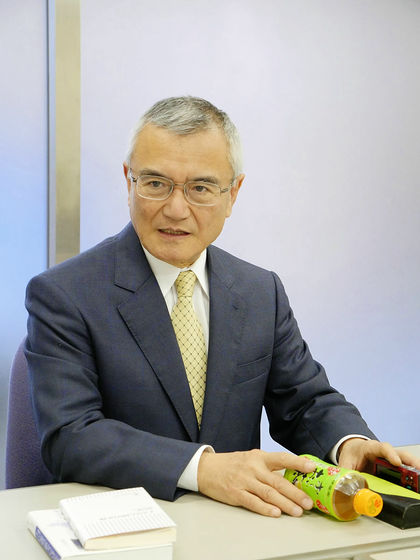
G:
Oh, yeah. It's the difference between who you are talking to.
Kunieda:
That's right. I think it's good to think a little more. You need a person from Iori as well, but if all this happens, you can't help it.
G:
It is a story that you are not balanced.
Kunieda:
There are quotes from such foreign ministers, deputy ministers of foreign affairs, ministers of information, and such people, but only once or twice a year, which is no good. When writing an article, I think it would be nice to approach the opinions of those decision makers. I think it would be good if we had a relationship where we could hear the minister's story over the phone right away.
G:
I see, i see. If you pay attention to who is saying the statement that the reader is also quoting, you can read the contents more deeply.
Kunieda:
Yes, I think it would be better to create a relationship with people who will be sources of information in each country. The correct information, for example, is that the Asahi Shimbun has received various criticisms recently, and always wrote 'I apologize for correction' when making corrections. I have corrected things that I don't need to correct, but on the other hand, I have hardly made any corrections even if they were wrong in overseas reports. There are so many stakeholders in the country that they know, so if you report something wrong, it will react quickly. However, few people know overseas problems, so it's good to be able to “write” them. I guess it's a must.
G:
Oh, yeah.
Kunieda:
Although it is old, a demonstration took place in the autumn of 2011 at a location called 'Meze' in Syria. Then, not only the Asahi Shimbun but also other newspapers reported that at last, an anti-government movement occurred in a high-end residential area Messe where the central people of the government live. But it's the difference of 'Mese'. There is a large cactus farm between the Messe in the savage cave and the luxury residential area, where the cactus fruit, the cactus fruit, is harvested, but both areas are isolated. However, there is an official residence of the Japanese ambassador in the luxury residential area of Messe, and you may have been called to eat at the official residence of the ambassador, saying, 'I have eaten here.' That's why everyone thought, 'If you say Mezze, it's here.'
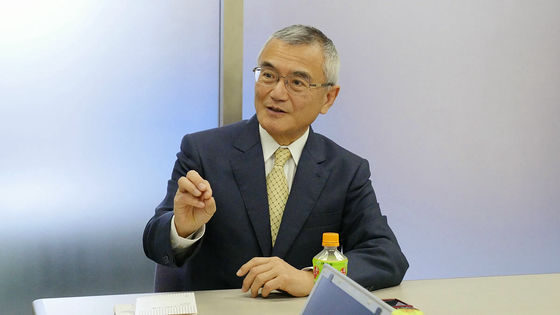
G:
Indeed, I thought I knew it.
Kunieda:
So, it happened outside of the high-end residential area where high-level government officials live. I'm saying that I'll bump into myself without correcting any mistakes. Generally, foreigners don't come close to the Meze in the slum. However, my wife and I were always walking, this is the outlaw world. But I didn't feel dangerous, but we went everywhere. Although other people did not approach such a place.
G:
After all there are various things.
Kunieda:
I can't help but make a mistake, but if it isn't, I want you to correct it. I just mentioned one example, but there are others.
◆ The ambassador who packed and transported a large amount of wad
G:
In 'Islamic country identity', there is a place where I was wondering what this was. On page 52, it says, 'I once carried $ 300,000 with $ 100 bills. I used a large bag, but it was a considerable amount.' What kind of situation led you to do this?
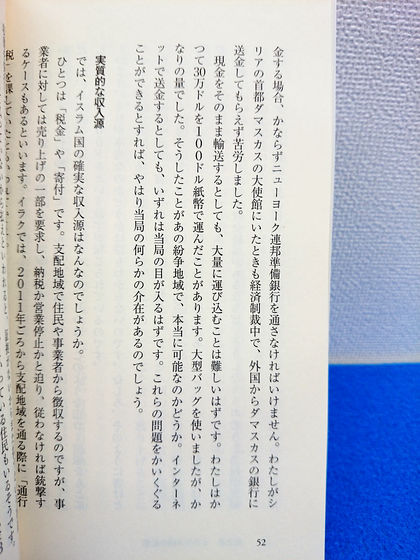
Kunieda:
This is the flow of the story that “Millionaires overseas support Islamic countries”. Sending a dollar from abroad to Syria is a very time-consuming and tedious process, since bank transfers are always checked through the
The same goes for my salary. For example, when I was in Cameroon, my salary was first sent to Paris and entered into a Japanese bank in Paris. After confirming that they are in that account, they issue a remittance instruction. Banks with branches in Cameroon will be French because of the limited number of banks, but in Japan they are sent to a branch in Douala , which is in Osaka. From there, I instructed to send it to the Douala branch in the capital, Yaounde, and when I arrived at Douala, I arrived at Yaounde, but I gave instructions to Paris and arrived smoothly. Absent. A few weeks after giving the instructions, I went to Yaounde's branch and said, 'I'll withdraw money.' He said, 'I've been giving instructions long ago.' Tell the treasurer, 'Let's find it because it's gone.' He contacted Paris and asked him if he had any money from Paris to Douala. Is it ?! '. Then, 'It disappeared somewhere' (laugh)
G:
It's such an idiot to disappear somewhere ...
Kunieda:
That kind of reply comes about. After another three weeks, I was contacted 'Oh, found' and finally arrived at Douala. After arriving at Douala, next is Yaounde. If you don't follow Yaounde properly, you will find that it has disappeared somewhere. In the end, after paying me my salary in Tokyo, I could only get two or three months. That, too, is traced all the time.
G:
That's what happens simply by moving money ... Does this happen frequently?
Kunieda:
It's always frequent, always.
G:
Always !?
Kunieda:
Foreign Ministry officials who only go to developed countries say, 'Why do you rattle so much?', But they don't know (laughs) and this time in Syria. In Syria, where sanctions are being imposed, my monthly salary is sent in US dollars, and I first go to a Japanese bank in Europe, and since I don't come to Syria, I have to send it to Beirut, Lebanon. Such a movement of gold requires time because it requires the approval of the New York Fed. So, from Beirut to a local bank, you can send it to Damascus because your branch is in Damascus, but you come and go. It's relatively easy to get a branch from Beirut to a branch in a town just across the border. Once we know that we have arrived, we drive a car and cross the border. I was living that way. So while I'm getting less money, I'm thinking, 'I'm worried, can I live?' I didn't go every month, but every three months.
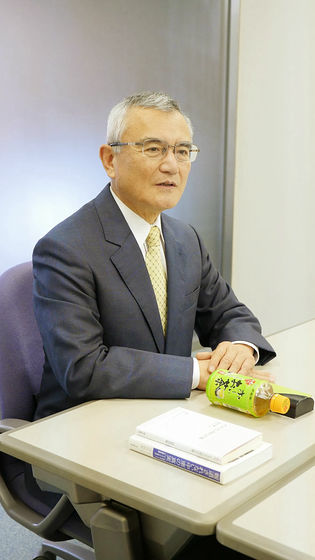
G:
When it comes to that, isn't it extreme that it is faster to carry cash directly?
Kunieda:
When the hostages were released in Iraq, the rest of the world was released in December, so we had a chance to return soon, and it was told that a Japan Airlines plane would be picking up in Amman. The Iraqi side insists, 'We have Iraqi airlines so we will send them to Tokyo.' The negotiator was me, but I said, 'No, no.' 'Because you've kidnapped, why you can send them back to Japan on a plane with a frightened person, when the Japanese people board the plane, they say,' I'm going back to Iraq and being put in a camp somewhere. Maybe you're anxious. Are you trying to do something inhuman like that? ' The other side says, 'I won't swear to heaven.' So, 'Will you ever swear to heaven and abduct?' I said, 'No, not at all.' There is a story like a manga like that, it's inevitable after a long time, so arrange the route in two, charter Iraqi Airlines to Bangkok, and go from Bangkok to Japan Airlines. I did. The price was negotiated to make it a little cheaper, and the price to Bangkok was a reasonable amount, but it was said, 'Pay in advance with cash' ... 'You, it's a Chinese proverb, it's an outrageous problem.' I made a selfish claim to accept postpayment, so I ordered it immediately and took it with me.
G:
So that's it.
Kunieda:
Despite being packed with such a large bag, the support for the Islamic State is worth millions or tens of millions of dollars. If you can't transfer money by bank, you'll have to carry it in cash, but then you'll have to go in a row of trucks, and you can't.
G:
indeed.
Kunieda:
It means that such a large amount of money can not be moved with cash, it is another way.
◆ Arab black market
G:
I'm sorry to pay attention to all the weird things, but on page 61 and page 62, 'We can get weapons from Turkey in Islamic countries. If we have weapons, there are people who sell everywhere and some people buy them. 'We at the Japanese people have no knowledge or information at all, so it would be hard to imagine, but for Arabs and those around them, the existence of the black market is common sense.' I was invited by a governor of a certain country to have lunch, and had him put on the passenger seat to move in his private car, but there was a pistol left in the passenger seat. Lived for about 16 years in Africa, Asia and the Arab States as diplomats, but more or less everywhere in terms of weapons. ' Yes you. It is exactly what we cannot imagine, but what is the Arab black market?
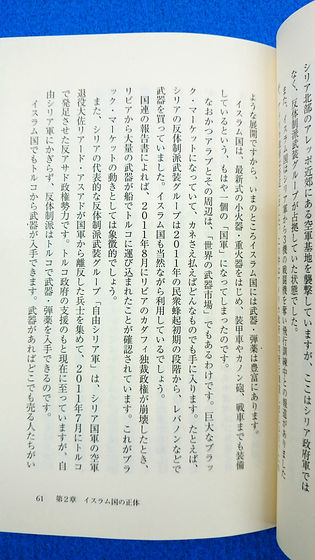
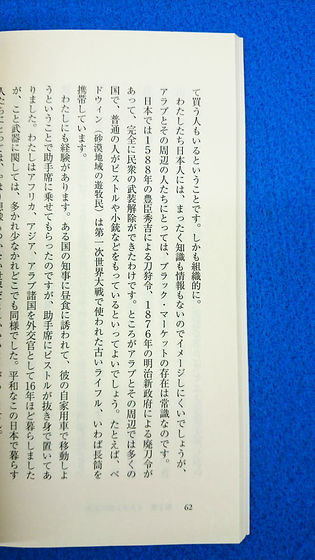
Kunieda:
I don't know well, but there are guns and so on.
G:
Physically, a black market that sells things right in front of you? Don and things are placed.
Kunieda:
Yes Yes. Or hide it behind the store. So, those who know do know. After March 2011, demand was so concentrated that guns were already running out of Beirut. The price is very high because it's outrageous, but everyone bought more and more. You have plenty of money.
G:
Is it obvious that it's a different store, but it actually sells them?
Kunieda:
The police know, everyone knows.
G:
Police too!
Kunieda:
Everyone pretends not to look.
G:
That's a completely different situation from Japan.
Kunieda:
Japan has sword hunting and abolished sword orders, and such hurdles are high because weapons have disappeared from the house. The hurdles over there are low.
G:
What is the difference between weapon sensations in Africa, Asia, and the Arab nations that were just written?
Kunieda:
Another thing that needs to be pointed out is that everyone is in the military
G:
First of all, there is a premise.
Kunieda:
We feel like trembling when we say 'rifles'. Even a pistol can be seen and actually heavy, and you usually hold it with both hands. That's why when you get in the car and look at the seat, it is around. It's a bit uncomfortable. I always had the opportunity to touch it if I wanted to, but I never touched it.
G:
Around that, there is a completely different sense of weapons.
Kunieda:
The feeling is completely different.
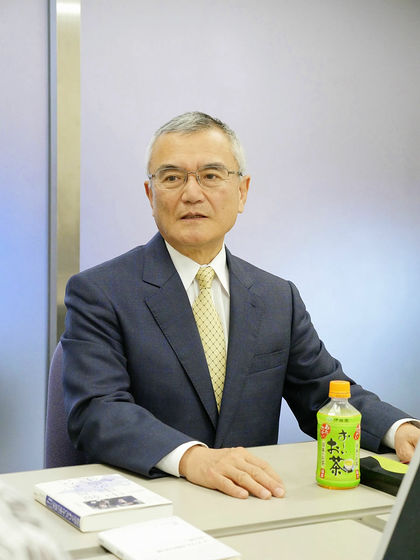
G:
After a while, on page 79, 'According to their published guidelines, up to three slaves can be' purchased. 'A Yazidi / Christian woman between the ages of 40 and 50 is about 5,000 yen, and from the age of 10 A 20-year-old girl costs about 14,000 yen, and a 1-9 year old girl costs about 18,000 yen. 'What is the price of this' 18,000 yen 'in a local market?
Kunieda:
It is a price you can buy normally. You can buy enough if you are a soldier.
G:
It's not something you have to save your purchase money for, or that your purchase is not a threat to your life.
Kunieda:
Yes, once you buy it, it's free, so it's not a big deal for them.
◆ 'Tail' of diplomats
G:
Another interesting story came out in the other book, 'Unreported Middle Eastern Truth.' At the beginning, on pages 15 and 16, 'I worked in Syria as an ambassador for almost four years from 2006 to 2010. During my tenure I was able to travel throughout the country in addition to interacting with as many people as possible. At one point, the prime minister at the time told me, 'You can go anywhere,' and wondered if the government was alert to my actions. 'Comes out.
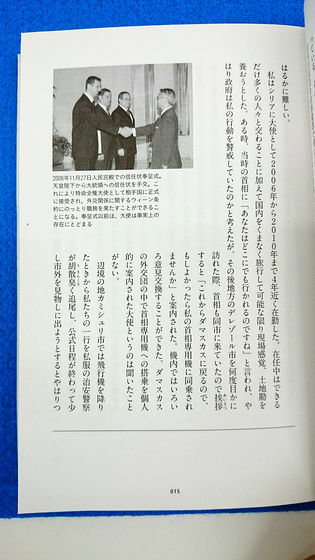
A little vacant, 'In the outlying area of Kamishli, when I got off the plane, the security police in plain clothes pursued our party, and when the official schedule was over, I was still going to see a little outside the city. So I told them their destination and asked us for information on geographic location, but at first they were kind of greeted, but they were kind enough to guide me, so I could enjoy places I couldn't usually see or go. . ' I think this is a pretty amazing story ...
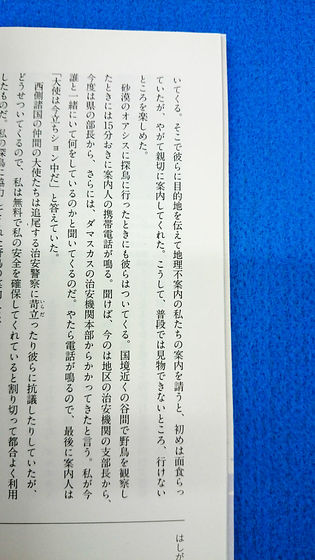
Kunieda:
In fact, at that time, I gave you a tip when you parted later (laughs) 500 yen per person.
G:
How do you notice that you are being followed?
Kunieda:
Because there are only two cars where no one else is (laughs)
G:
Is it so explicit !? (laugh)
Kunieda:
Already explicit! I do not understand a bit in the town, I usually open between 3 or 4 cars, but as you move away from the center of the city the number of cars decreases rapidly, but the same car is always behind so Cars, after all. '
G:
So that's it. This story is about Syria. Is it true that diplomats and ambassadors are followed everywhere, or is it special only in Syria?
Kunieda:
Elsewhere, I was in Iraq. When walking in a local town, several plain clothes were attached from the back about 30m, so I turned around the corner and immediately entered the cafe. When they bend, they were surprised, 'Oh, there's no one!' He hastily put his face on the glass and look around the shops. Then, we looked outside, so our eyes met and we fled at that moment (laughs).
G:
It's so explicit !?
Kunieda:
Well, it's a lot of fun and it's a laugh between us.
G:
What is the other side trying to know by tailing?
Kunieda:
It's about who we meet and what we're trying to do. And who are you talking to? Later, when they talk, they approach the person and ask, 'What did you talk to him?'
G:
I'm arriving from behind to do that.
Kunieda:
Yes. But I thought I was free guarding myself, so I enjoyed watching it, but I didn't mean to do anything special like a spy. However, my fellow ambassadors from other countries seemed to be upset and angry at once.
G:
It depends on the person.
Kunieda:
When I said, 'Isn't it safe to guard me for free?' I was told, 'What's that attitude?'
G:
What was it like when you told him in the book, 'That's unfamiliar, please guide me'
Kunieda:
At first I was surprised and stiff, and I couldn't easily get a reply even if I spoke. But after a while I came to my heart and handed a tip with `` Thank you very much '' and handed a chip, I refused at first but I pushed it into my pocket properly (laugh)
G:
It's like that the other person is also a human.
Kunieda:
Yes, of course. It's a soldier who thought he wasn't a human. They don't move even if they are commanded from above, and they don't respond at all when talking, stones.
G:
Does that mean he has some training?
Kunieda:
I mean, they were not humans, they were cyborgs.
G:
Is there a difference between the people who were following and the top and bottom?
Kunieda:
Yes Yes.
G:
In Japan, there is no military duty, so I don't know much about that.
Kunieda:
I don't think this can be understood without experience in the field.
◆ Islamic State (IS)
G:
In the book 'Islamic State', 'Islamic State' is written, but recently the Japanese government has decided to call it 'ISIL' and NHK will call it 'Islamic State, IS'. Was. In short, the `` Islamic country '' is only a self-proclaimed name, but the name of the opponent is intentional and seems to be a consideration to avoid misunderstanding that it is a whole Islamic country, but what kind of meaning does such a response mean? ?
Kunieda:
I don't think it is very effective on site. In a Syrian city under 'Islamic State' control, 'Assad's administration comes here and they will be released again' or 'I will be released, but at that time I will hurt the Assad again You might be able to do that. ' However, they know that 'Islamic countries' are completely different from so-called internationally recognized countries. However, the further away you go, such as
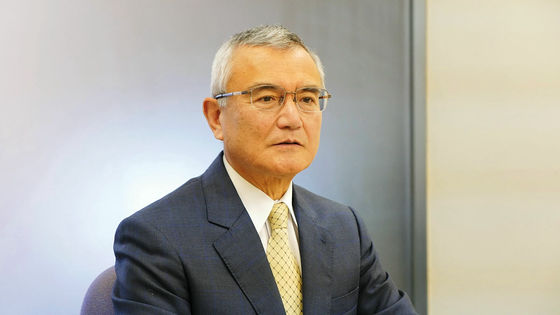
G:
Does that mean there will be an effect to bridge that gap?
Kunieda:
I think it is.
G:
So is it appropriate that the Japanese government responds and that NHK changes its name?
Kunieda:
But I pronounce 'ISIL' as 'Aisil', but that sounds strange. I think if you are a Japanese, you say 'yes I'll'. It is an American to read that as 'Aisil'. The US government is making that pronunciation. But I think it's strange that we pronounce it the same way.
G:
Indeed, what is the standard?
Kunieda:
Why say 'Islamic country', but why do you pronounce 'Aisil' in American English instead of 'IS'? I feel uncomfortable.
◆ Is it true that the Japanese embassy cannot be relied on and escape to the US embassy?
G:
I would like to ask you that you were working as a diplomat or MOFA. Because, ``
Kunieda:
At the time of the Gulf Crisis, a US embassy member fled to the Japanese embassy in Kuwait, and was specially concealed and protected at the discretion of the temporary deputy ambassador (Counselor Yukio Shirota ). He was later awarded by Secretary of State Baker, but he struggled to save his life. If information had leaked to the Iraqi side, it would have been tough, but the American embassy was able to survive because it was hidden by the Japanese embassy. Also, in Benghazi, Libya, the American consulate was attacked and the Libyan ambassador who happened to be killed wasn't it? Because of that, I don't think it's always necessary to get into the United States.
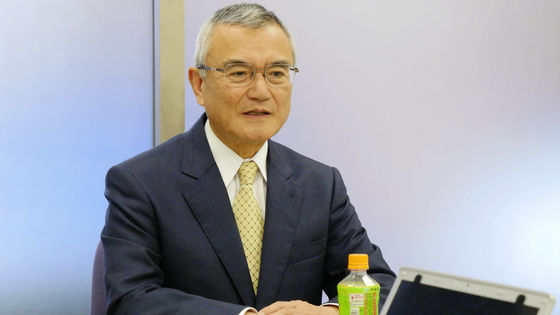
G:
What criteria should we have when we need to escape? According to information on the Internet, for example, Keiko Nishihara, as her husband, Mr. Minoru Kamoshida, closed the door when trying to escape to the Japanese embassy in Myanmar and reported it to his teacher, Mr. Hashida, who said, I'm running away! '
I was talking about a duck before life. She was shot from behind in Myanmar and tried to escape to the Japanese embassy, where she confirmed that she was Japanese and closed the door. When he reported to his teacher, Mr. Hashida, he said, 'Do you know the common sense of Bakayaro! Escape to the US Embassy without hesitation! Help there anyway!'
— Keiko Nishihara (@ riezo0608) 2015, February 3
In addition, Toshihiko Yahagi 's essay book states, 'I often go abroad. I go to places where ordinary people cannot go and connect with people that I cannot have. Therefore, I encounter countless troubles. However, I have never been saved by a diplomatic mission abroad in Japan. 'I wonder if that image is fixed.
Kunieda:
Basically, the first mission of the embassy is to protect the lives and property of Japanese people. In the case of Yukawa and Goto that occurred this year, Mr. Goto said that he was `` self-responsibility '' and left such a message, but it is impossible that the government will do nothing and do nothing. To protect the life and property of the Japanese people is a proposition and a duty. There's no way we can do it. Since the embassy is part of the Japanese government, it also has a mission to ensure the safety, life and property of Japanese nationals. In that sense, the embassy is responsible for Japanese people. It's a rejection, but there's probably a very big misunderstanding on both sides, and I think that's what it's like, a story that's impossible.
G:
Indeed, it's an impossible story. Does that mean that there is a lot of hearsay information?
Kunieda:
However, recently there have been various external security threats, and in order to ensure the safety of the embassy itself, a gatekeeper was required to enter, or a small gate was shown with a passport, and so on. Is necessary, so I think it would be a good idea to go through it properly.
G:
I see, i see. For example, what if I went for help but got hit by a guard?
Kunieda:
The guards are locals, so it might be possible for the locals to jump out because they don't know if they are Japanese or not, or from which country in Asia. I can't help but convince myself that I'm Japanese.
G:
I would do my best without withdrawing there.
Kunieda:
Oh yeah, it's better not to withdraw.
G:
It's an extreme story, so if you make a noise, people inside will also notice (laugh)
Kunieda:
After all, if you make a claim, the gatekeeper will contact the consul inside. Then the consul comes out and talks in various ways. However, if you see 'something suspicious' there, it's dangerous.
G:
That's fine as long as you're coming for good reason.
Kunieda:
That's right. If you have the experience, you probably have misunderstood one of them.
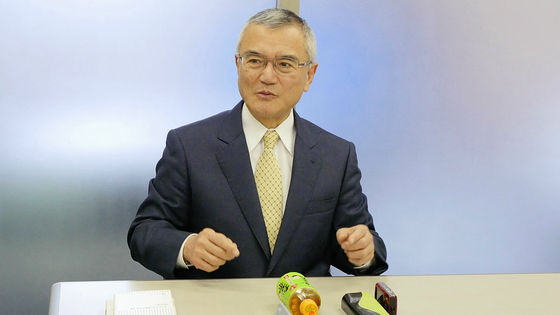
◆ The future of the “kidnapping case”
G:
Returning to the 'Islamic State' again, they took the Japanese hostage this time and demanded a ransom, and the government did not pay it. In the future, even if the Japanese are taken hostage again, the government will not pay the ransom and I think that the same will be repeated again, but what should I do? Do you?
Kunieda:
You don't get into that kind of situation where you become a hostage on your own. For example, for one thing, they never approach the sphere of influence of the 'Islamic State.' Similar problems can occur in irrelevant places such as France, Denmark and Belgium, but it is necessary to be interested in getting information on radio and television and information on embassies. After that, keep close to the dangerous places. They often say, 'I can't go to the crowds' or 'I can't go to the buildings of government offices', but then it becomes impossible to go to museums and sightseeing, so it became a common sense problem, and after thinking on my own Will act. However, now I do not know where and when what will happen, so always act with your own safety in mind.
G:
When it comes to personal safety, does it mean that you shouldn't approach tourists in unnecessarily creepy places?
Kunieda:
However, in 1997,
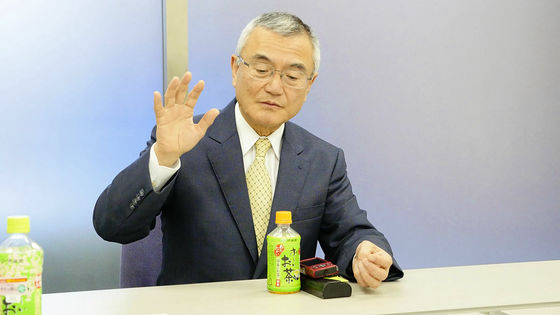
G:
Speaking of ransom, it is said that only the United Kingdom and the United States resolutely refuse to pay ransom payments in other countries, and even if they say that they do not pay ostensibly otherwise, they pay back and release them behind the scenes You. According to NHK , the Japanese government has not provided an official opinion, but in 2013 at the G8 Summit of the eight major countries, countries confirmed that ransom would not be paid because it would be a source of terrorist funding I did it. Thus, the United States and the United Kingdom banned ransom payments by law and created a law that could lead to prosecution if a hostage's family or company were requested. On the other hand, other countries are paying behind the scenes, saying they will not pay ostensibly. I think it's very difficult for the government to pay or not pay the ransom from the standpoint of protecting the lives and property of the people mentioned earlier, but Mr. Kunieda who actually saw various countries as a diplomat, What do you think?
Kunieda:
This is difficult. For example, if you pay, the abductee will think, 'Oh, sir.' What is often said is that there will be more, and that will continue indefinitely. If the abductee gains good taste, it will eat there. On the other hand, no matter how much you catch the United States and the United Kingdom, you won't get any money. The United States is aiming for such a thing. Certainly, there will be casualties right now, but it will probably not come in the future. If you pay, it will be saved, but you will be caught forever. Which is better? Overall, the UN Security Council has resolved at the UN Security Council not to pay anymore, which is very binding.
G:
As for the future direction, if the number of countries that do not pay for taking hostages increases, it is meaningless to take hostages, so such cases should decrease.
Kunieda:
I guess a resolution has been issued considering that. And not only the United Kingdom and the United States, but Russia does not pay. So, one Russian was kidnapped by the 'Islamic State', but he was killed quickly. 'This guy has no commercial value.' Hostages are a commodity for them.
G:
It's completely for gold.
Kunieda:
When it was 'not worth the money,' he didn't wear orange clothes and was killed with a pistol instead of being cut off. It's a waste of eating rice.
◆ Advice for those who want to be diplomats
G:
When I hear these stories, I think that diplomat is a difficult job, but there are many young readers, so if you want to be a diplomat, say `` If you do such things, It will make it easier to understand what's going on. '
Kunieda:
After all, it is better to have the language done properly. I took the exam in English, entered the Ministry of Foreign Affairs, and said, 'Let's do French.'
G:
How do you study?
Kunieda:
I can study abroad. I was sent to France for training and was given two years of time so I went to school in France and then went to college to study.
G:
Did you master French almost two years?
Kunieda:
I don't go there (laughs). In other words, I didn't have any English training and I learned using it on site. I taught French teachers all the time in my destination country, Egypt. So, two years is the starting point for my French. It's like adding a lot from the starting point.
G:
Naturally, is language important?
Kunieda:
This is already English, but English, Taka foreign, but foreign. Sometimes knowing in a foreign language can save lives.
G:
It's like choosing a language for negotiations.
Kunieda:
Negotiations are the same, and if you don't understand the words, you don't know what's going on around you. If you understand the language, you can think of how to handle yourself by that information.
G:
Not only to send, but also to get information.
Kunieda:
And I want you to be able to understand even subtle nuances. Language is still important.
G:
Words are the most important, and what is second?
Kunieda:
Socializing. It may be strange, but I was a president up and a homeless friend below.
G:
I know 'the president is above', but what does 'bottom be homeless' mean?
Kunieda:
In Cameroon, about 300m away from my house, there was always a homeless sitting on the side of the road. I passed by a car in front of me, so I couldn't stop but greeted me. And I left the house early in the morning around 5 o'clock and often jogged. Then, it was completely dark, but I was surprised to say 'Ambassador' suddenly at my feet.
G:
You were stopped.
Kunieda:
I was surprised because it was from the darkness. So if you talk to him, you know a lot of my actions. I thought, `` This guy, why do you know so well !? I need to be cautious, '' but I took care of me in various ways, and what kind of meaning was there in this situation and my safety? It also speaks. He thought, 'This guy is a good guy!', And then he went out with him and got helped or not, in any case, he cares about the situation around me. Was.
G:
There are things like that ...
Kunieda:
He has palsy and cannot move both hands and feet, but when I go to him by car, he says, 'I want to be independent.' I can't help living just because of your good intentions, so I want to make a stand and sell various things there to become independent. When asked, 'Do you have gold?' 'I have about XX.' He said, 'I don't have enough.' I was told, 'Please come to see because the stand is ready,' and when I went, 'I understand,' the stand was left to my daughter and the person was still homeless (laughs). He used it to buy and sell things, and his main source of income was there. Well, it is such a mutual help.
G:
Above is the President, what do you keep in mind when you talk?
Kunieda:
Speak proper words with subjects, verbs, and predicates (laughs) What you speak is decided in advance. To negotiate or get to know the Japanese government. I met about once every three months.
G:
In the case of Kunieda-san, how did you train your skills or social skills?
Kunieda:
Since joining the Ministry of Foreign Affairs in 1970 and becoming Consul General in 1996, 26 years have passed. After 26 years, I became the Consul General, and the person I was with at that time is now the head of state of Vietnam, I met before last (laugh) Starting from the second secretary, the first secretary As a government officer, counselor and minister, I think that during the course of building my career over the past 26 years, I probably learned how to associate with people at that level, I was not conscious much But
G:
He learned himself during work.
Kunieda:
Yes, I would have been trained without knowing.
◆ What I want to tell GIGAZINE readers
G:
This is the end of the question from you. On the other hand, is there anything you want to say or convey to GIGAZINE readers now?
Kunieda:
Recently, I argued that when the case of Goto and Yukawa-san, the government was in negotiations, so I would leave everything to government negotiations. If the 'Islamic State' knows that the people have been separated from the government and are in tension, the 'Islamic State' side must use it, so this should not be the case. So we were always insisting on now to leave everything to government negotiations and to calm down and back up the government.
The main premise is that 'when you're done, let's do the verification.' For the future, verification of the upcoming incident must be done properly. But I don't know how far it is going. In
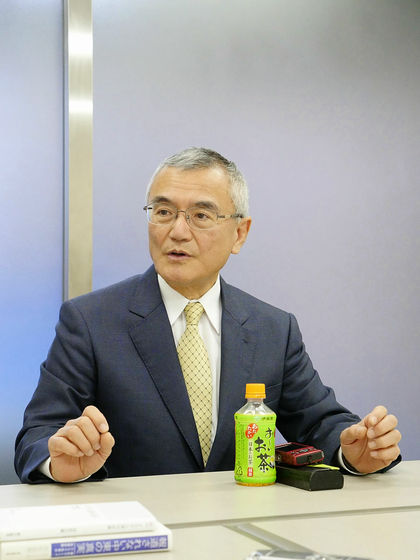
So I recall that the first video was released on January 20 and that each person's life and death was found on January 24 and 27. However, after the video on the 20th came out, the next day on the 21st, someone in the Prime Minister's Office told the press off-record that `` If you are dressed in orange with a hostage, you will not come back anymore '' That's right. This is written in the February Weekly Bunshun. I've been listening to this story since late January. I am very sorry. I do not know who is the executive of the Prime Minister's office from the beginning, but saying that `` I can not return home because I was dressed in orange, '' if Yukawa and Goto could not return home At that time, the people would pursue the responsibility of the government, but they struck first and tried to escape responsibility. It is not a word spoken by the general. It must not be the statement of the person standing on top of the organization and below, it is impossible. I said it off the record. Everyone in the media knows. It was defeatist from the beginning, so what was the rescue play like?
And then, one more thing, 'I wasn't reported because I said it off the record,' but it quickly leaked to various places. It leaks to the site. The people at the front line are standing at the forefront of negotiations, but when you look behind you, the top person says, 'No, I can't live home.' 'What is our negotiation?' You lose morale. It's unfortunate to have someone who speaks like this, even off the record.
G:
Including that, it is a verification to prevent it from happening next time the same thing happens.
Kunieda:
That's right.
G:
It might be strange to do verification only for your relatives.
Kunieda:
I think I need to take it more seriously. The opposition is also weak now, so I have to do it seriously. Don't let a new secrecy law come and do what you do with it. And also, the people who pursue should study properly.
G:
Well, no matter what the story was about, you need to know about it.
Kunieda:
It's more of a verification than a charge of responsibility.
G:
To make the most of the next time, don't repeat the same mistake twice.
Kunieda:
I see. Also, as 'what I want to say', the story is divergent, but everyone thinks that I am closer to the Assad administration.
G:
Well, the book clearly states, 'I'm not pro-Assad.'
Kunieda:
Yes, but everyone skips that place. In a book review of a certain paper, `` the identity of the Islamic country '' was listed, but it also said, `` Of course it is a bit closer to the Assad administration '' (laugh)
G:
As you'll see at the end of the book, 'I'm not the voice of Assad's administration.'
Kunieda:
In addition, despite saying that 'the statements of the Assad administration have not been reported at all, I will write in detail the statements of the Assad administration,' he said, 'As a matter of course, he is leaning toward Assad.' This is the February 15 newspaper. There is no such way of writing ... Everyone wants to color whatever it is right now. But at the same time, it's the same as declaring yourself to be anti-Assad.
G:
People who read this book review and bought it will have to complain, 'It's different from what is written.'
Kunieda:
Please complain (laughs). I was interviewed by a weekly magazine over the phone, so I spent one hour explaining that the Assad administration's position was like this. Then, the following week, I wrote an article, 'Assad's government to do a great liar', and my statement was quoted there. They use only a small part of what they say, ignoring the context of the story.
G:
You ignore the context.
Kunieda:
But, I'm glad I gave you a reward (laughs). But I'm not going to be interviewing that weekly magazine again. However, after a while, another reporter of the same weekly magazine interviewed the telephone and heard a little talk and did not know anything, I thought that I should help you, with luck, another hour I have answered the interview. It's me.
G:
If cartoonist Raikaku Makoto received the same interview in Weekly Shincho, it was a different story from the answer, and it was written that `` I will not undertake an interview with Weekly Shincho again '' I have interviewed what it was. It's a shame that people who see the news want to know the truth but that's what it is.
Kunieda:
Perhaps there was an editorial policy of 'Let's do it this way', but I don't see a good story to listen to Kunieda for one hour, so I guess I could just quote here ... .
G:
The time has come when I visit a lot. Thank you very much this time.
Kunieda:
Thank you very much. Please read a lot! And give us your feedback! (Lol)
Amazon.co.jp: Identity of Islamic Country (Asahi Shinsho): Masaki Kunieda: Books
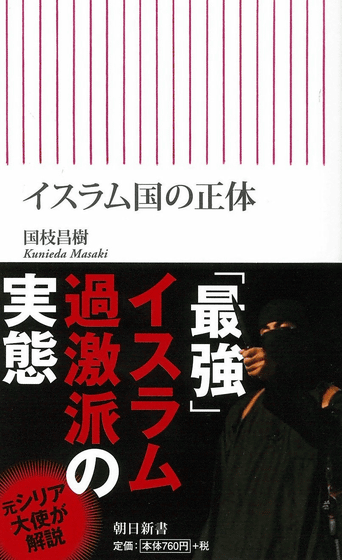
Related Posts:
in Interview, Posted by logc_nt
